With plenty of sunshine, rich soil, and plenty of water, zucchinis are some of the most rewarding vegetables to grow. Provided all factors are kept optimal, zucchinis have a guarantee of a bumper harvest of fruits that are smooth, tender, and delicious.
However, your plans for a great harvest might be derailed by pests and crop diseases that may invade the garden.
Studies have shown that practicing companion planting is one sure way to curb pest and crop diseases, and in turn, boost the plant health as well as the quality and quantity of the produce.
However, to do this right, you have to ensure that the plants you choose for companionship, either through intercropping or by succession, are compatible.
In this way, you will ensure that the plants create mutual relationships where they benefit from each other.
Table of Contents
What is Companion Planting?
Companion planting is a gardening method where more than one crop can be intercropped on the same farm, or systematically grown in succession with each other, in a way that creates mutually beneficial relationships where the plants benefit from each other.
In most cases, it is the more vulnerable crop that is being protected. Besides protection from pests, meaningful intercropping also attracts beneficial insects to the garden and stimulates growth for the crops.
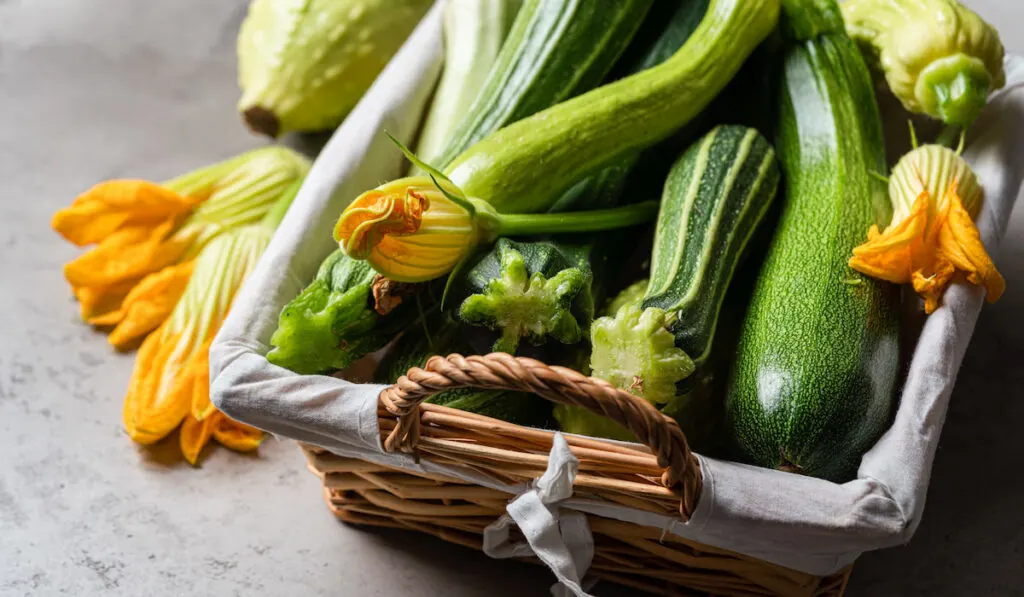
Benefits of Companion Planting
Depending on the companion crop, it either helps a certain crop grow better, or it will grow better beside a certain crop in any of the following ways;
- Attracting beneficial insects – catching the attention of pollinators like ladybugs and bees into a vegetable garden needs a little more motivation with scents and brightly colored flowers. For this, borage flowers are best suited for enticing the pollinators.
- Enriching the soil with nutrients – crops take up a lot of nutrients from the soil as they grow, often giving farmers a hard time replenishing the nutrients at the end of the season. However, companion plants like beans add nutrients like nitrogen back in the soil, helping other plants stay well-fed and healthy.
- Encourage faster growth and better harvests – some companion plants like chamomile and summer savory release certain chemicals to the soil that encourage better taste and faster growth of other crops around them, leading to better harvests.
- Pest repellents – many insect pests are attracted to vegetable gardens. However, companion plants like catnips and marigolds are natural repellants to many pests and should be planted close to certain crops to keep them pest-free.
- Ground covers – companion plants like oregano spread low across the ground giving a live mulch cover that shades the soil from the sun and helps keep the ground cooler for plants that need it cool.
- Garden markers – it can be difficult to tell where the rows will be when dealing with slow-growing plants. However, with the help of fast-growing companion plants like radishes, it will be easier to distinguish where the slow growers will be.
- Providing necessary shade – leafy and tall plants like asparagus and zucchini are great for providing shade to sun-sensitive crops that might be beneath them.
Companion Plants for Zucchini
Now that you know what companion planting is, including its benefits, what crops can you interplant with zucchini?
1. Corn
Famously known as the three sisters, squash, corn, and beans are the oldest set of dream team companion plants, with a history of more than 3500 years. Squash, like zucchini, is one of the three sisters.
Owing to their broad leaves and extensive growth, stretching to about 12 inches across, zucchini acts as a live mulch cover that blocks the sunlight from reaching the ground, helping to retain the moisture in the soil that is essential to corn.
Zucchini foliage cover also prevents weeds from creeping into the garden.
2. Beans
Beans are among the three sisters. Beans are nitrogen fixers in the garden. They are natural hosts to Rhizobium, a special type of soil bacteria that extracts atmospheric nitrogen and makes it available in the soil for plants. Beans, therefore, help build the soil fertility for themselves and the surrounding plants, and this is especially helpful for heavy feeders like corn and squash.
For their part, zucchini provides a bit of pest protection and prevention, thanks to their large leaves, needle-like hairs covering the stems, and the sharp spines that prevent critters and rodents from rampaging your garden.
3. Small-flowered Herbs
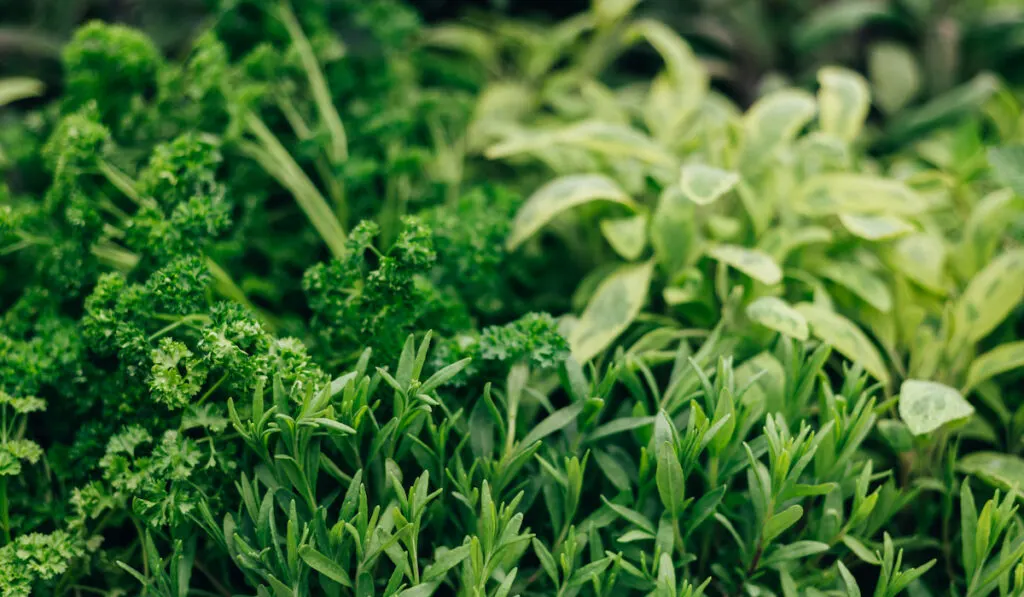
Zucchini plants are a target for many pests including spider mites, cucumber beetles, whiteflies, flea beetles, aphids, cabbage moths, and many others. Luckily, many beneficial insects prey on these pests. However, to invite them to your garden, you should practice companion planting with herbs like dills, oregano, borage, thyme, and fennel.
This way, you will be providing pollen and nectar for the wasps, bees, lacewings, hoverflies, praying mantis, butterflies, ladybugs, and other natural predators of these pests.
It is recommended that you surround your zucchini garden or edge your raised bed with flowering herbs every season to attract these insects. However, you should stop harvesting the herbs by early summer to give time for them to bloom and produce nectar.
4. Radishes
Radishes are pest repellent, efficient against aphids, cucumber beetles, and squash bugs that often attack zucchini plants.
Thanks to their small size, radishes are perfect for growing beneath zucchini plants.
5. Garlic
Garlic works as a natural repellent to pests like aphids. They possess strong sulfur compounds, and this is a put-off for most pests.
If left unchecked, aphids can cause serious and extensive damage to your zucchini, and intercropping garlic with them will help keep the pests away.
6. Marigolds
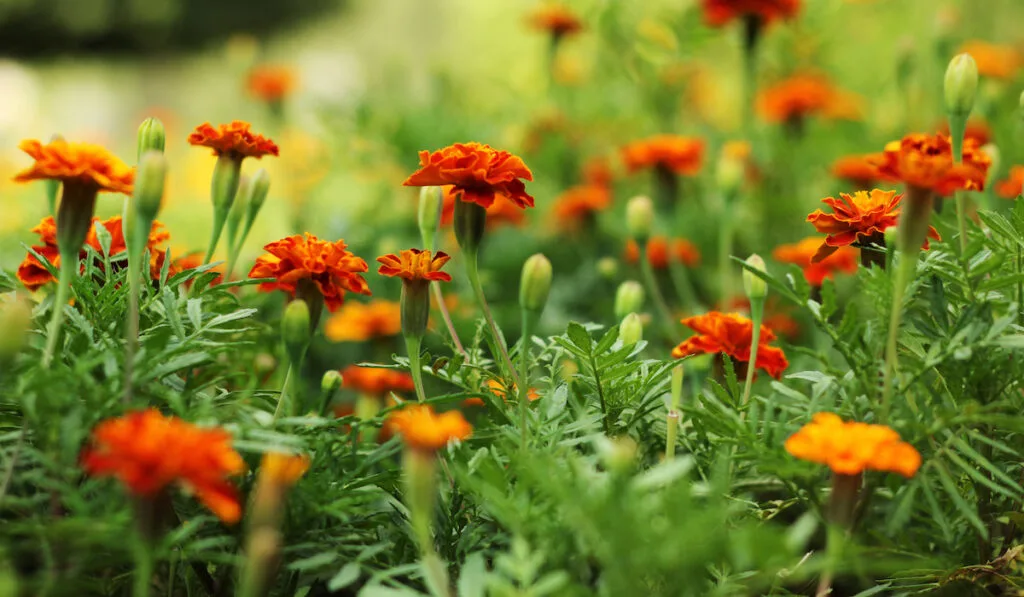
Since they attract pests like aphids, squash bugs, mosquitoes, and squash vine bores, marigolds should be planted away from the garden to minimize the risk of these pests coming close to your zucchini.
French marigold, on the other hand, is more suited for inter-planting with zucchini. They are appealing to the useful insects, who are the natural predators of common pests, therefore attracting them to your garden.
They also trap slugs and snails, the uninvited guests who would bring ruin and devastation to your seedlings. French marigold roots also secrete a chemical that repels harmful nematodes in the soil.
7. Mint
Various mint plants like hyssop and sage, have different aromas, all effective in repelling grazing animals like deer. They also attract aphids, therefore it is recommended to have a container of mint nearby to divert them away from the zucchini.
However, do not plant mint directly into your garden. It will self-sow and quickly spread to the entire garden before you can control it.
8. Nasturtiums
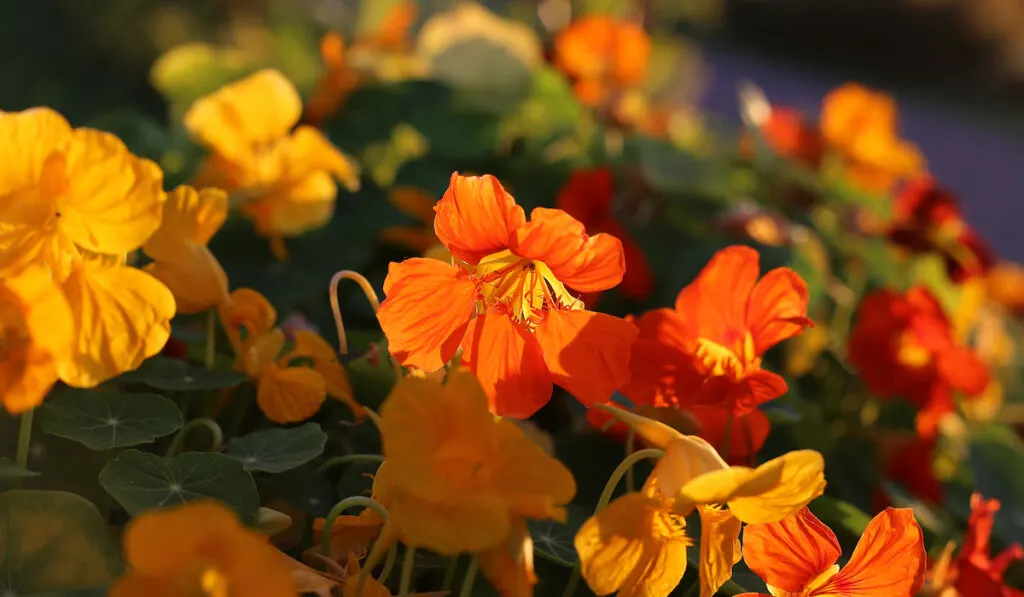
Nasturtiums are mostly the preferred food for pests like aphids. For this, gardeners often plant them around the perimeter of the vegetable garden, or a distance away from the garden to divert the pests away from the valuable crops.
Aphids are easy to spot assembling on nasturtium leaves. To reduce the risk of spreading into the garden, it is recommended to cut off and dispose of any affected leaves on the plant.
Other Companion Plants for Zucchini
The above list doesn’t exhaust the possible combinations of companion plants for zucchini. Among other compatible plants with zucchini are oats, peas, clovers, phacelia, rosemary, yellow mustard, sunn hemp, and the blue Hubbard squash.
Plants to Avoid Growing with Zucchini
- Potatoes – these are never a good choice for inter-planting with any squash cultivar. This is entirely because both are heavy feeders, and growing them next to each other will lead to competition for resources (nutrients).
Furthermore, there will be a higher risk of blight for both the zucchini and potatoes in case of a hot, wet, and humid growing season. Intercropping them will only help spread the fungus faster.
- Pumpkins – both zucchinis and pumpkins need plenty of room to grow. For this, these two make poor neighbors. Either way, pumpkins get more aggressive and will eventually choke out any zucchini, or any other squash with their vines and tendrils.
Additionally, they can cross-pollinate and you may end up with rather funny squash produce than intended. You should therefore grow them as far away from each other as you can. Lastly, they are both heavy feeders, and intercropping them will lead to scrambling for nutrients in the soil.
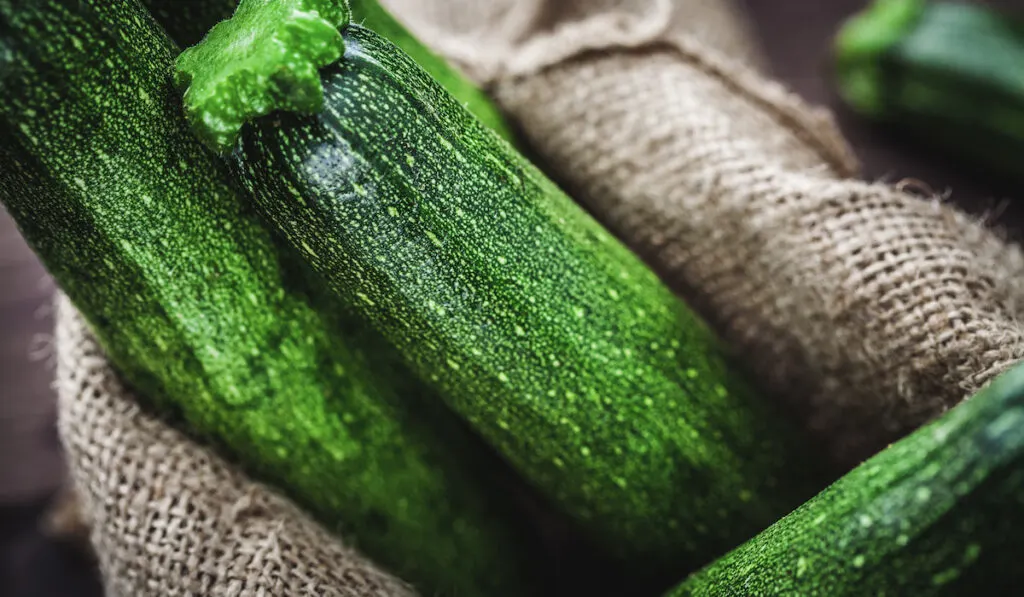
Conclusion
Zucchini plants are open for companion planting with many companion options.
However, the key to good companion planting is ensuring that the companion plants create a good symbiotic relationship with the zucchini.
After reading this article, I hope you are in a better position to choose the best companion plant for your zucchini.
Resources
- https://www.ruralsprout.com/zucchini-companion-plants
- https://www.thespruce.com/companion-plants-zucchini-and-summer-squash
- https://savvygardening.com/zucchini-companion-plants
- https://www.masterclass.com/articles/zucchini-companion-plant-guide
- https://www.hgtv.com/outdoors/flowers-and-plants/vegetables/companion-planting-for-zucchini
- https://togethertimefamily.com/zucchini-companion-plants
- https://balconygardenweb.com/zucchini-companion-plants
